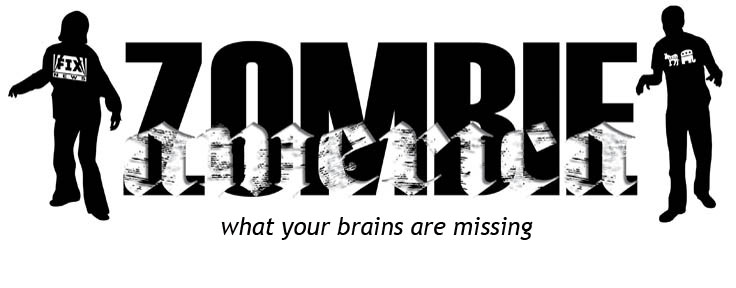THE FEDERAL RESERVE BANK IS A PRIVATE COMPANY.
Article 1, Section 8 of the Constitution states that Congress shall have the power to coin (create) money and regulate the value thereof. Today however, the FED, which is a privately owned company, controls and profits by printing money through the Treasury, and regulating its value.
The FED began with approximately 300 people or banks that became owners (stockholders purchasing stock at $100 per share - the stock is not publicly traded) in the Federal Reserve Banking System. They make up an international banking cartel of wealth beyond comparison. The FED banking system collects billions of dollars in interest annually and distributes the profits to its shareholders. The Congress illegally gave the FED the right to print money (through the Treasury) at no interest to the FED. The FED creates money from nothing, and loans it back to us through banks, and charges interest on our currency. The FED also buys Government debt with money printed on a printing press and charges U.S. taxpayers interest. Many Congressmen and Presidents say this is fraud.
Who actually owns the Federal Reserve Central Banks? The ownership of the 12 Central banks, a very well kept secret, has been revealed:Rothschild Bank of London
Warburg Bank of Hamburg
Rothschild Bank of Berlin
Lehman Brothers of New York
Lazard Brothers of Paris
Kuhn Loeb Bank of New York
Israel Moses Seif Banks of Italy
Goldman, Sachs of New York
Warburg Bank of Amsterdam
Chase Manhattan Bank of New York
These bankers are connected to London Banking Houses which ultimately control the FED. When England lost the Revolutionary War with America (our forefathers were fighting their own government), they planned to control us by controlling our banking system, the printing of our money, and our debt.
The individuals listed below owned banks which in turn owned shares in the FED. The banks listed below have significant control over the New York FED District, which controls the other 11 FED Districts. These banks also are partly foreign owned and control the New York FED District Bank.First National Bank of New York
James Stillman National City Bank, New York
Mary W. Harnman
National Bank of Commerce, New York
A.D. Jiullard
Hanover National Bank, New York
Jacob Schiff
Chase National Bank, New York
Thomas F. Ryan
Paul Warburg
William Rockefeller
Levi P. Morton
M.T. Pyne
George F. Baker
Percy Pyne
Mrs. G.F. St. George
J.W. Sterling
Katherine St. George
H.P. Davidson
J.P. Morgan (Equitable Life/Mutual Life)
Edith Brevour T. Baker
How did it happen? After previous attempts to push the Federal Reserve Act through Congress, a group of bankers funded and staffed Woodrow Wilson's campaign for President. He had committed to sign this act. In 1913, a Senator, Nelson Aldrich, maternal grandfather to the Rockefellers, pushed the Federal Reserve Act through Congress just before Christmas when much of Congress was on vacation. When elected, Wilson passed the FED. Later, Wilson remorsefully replied (referring to the FED), "I have unwittingly ruined my country".
Now the banks financially back sympathetic candidates. Not surprisingly, most of these candidates are elected. The bankers employ members of the Congress on weekends (nickname T&T club -out Thursday...-in Tuesday) with lucrative salaries. Additionally, the FED started buying up the media in the 1930's and now owns or significantly influences most of it Reference.
Presidents Lincoln, Jackson, and Kennedy tried to stop this family of bankers by printing U.S. dollars without charging the taxpayers interest. Today, if the government runs a deficit, the FED prints dollars through the U.S. Treasury, buys the debt, and the dollars are circulated into the economy. In 1992, taxpayers paid the FED banking system $286 billion in interest on debt the FED purchased by printing money virtually cost free. Forty percent of our personal federal income taxes goes to pay this interest. The FED's books are not open to the public. Congress has yet to audit it.
Congressman Wright Patman was Chairman of the House of Representatives Committee on Banking and Currency for 40 years. For 20 of those years, he introduced legislation to repeal the Federal Reserve Banking Act of 1913.
Congressman Henry Gonzales, Chairman of a banking committee, introduces legislation to repeal the Federal Reserve Banking Act of 1913 nearly every year. It's always defeated, the media remains silent, and the public never learns the truth. The same bankers who own the FED control the media and give huge political contributions to sympathetic members of Congress
Source
skip to main |
skip to sidebar
Table of Contents
- Bohemian Grove (1)
- Brainwashing (1)
- Cognitive Dissonance (1)
- COINTELPRO (1)
- Conspiracy Theory (1)
- Council on Foreign Relations (1)
- Dialectic (1)
- Disinformation (1)
- Divide and Conquer (1)
- Doublespeak (1)
- Doublethink (1)
- Esoteric (1)
- Eugenics (1)
- Exoteric (1)
- False Flag (1)
- Federal Reserve Bank (1)
- Free (Freedom) (1)
- Georgia Guidestones (1)
- Groupthink (1)
- Ignoratio Elenchi (1)
- Insurrection Act (1)
- Mind Control (1)
- Nano-Thermite (1)
- New World Order (1)
- Patriot (1)
- Plutocracy (1)
- Posse Comitatus Act (1)
- Problem Reaction Solution (1)
- Project For a New American Century (PNAC) (1)
- Propaganda (1)
- Provocateur (1)
- Psychological Operations (PSYOP) (1)
- RAND (1)
- Skull and Bones (1)
- Stockholm Syndrome (1)
- Straw Man (1)
- Terrorist (1)
- The Art of War (Sun Tzu) (1)
- The Great Game (1)
- Topics Defined (1)
- Trilateral Commission (1)
- Tyranny (1)
- World Government (1)

.jpg)
